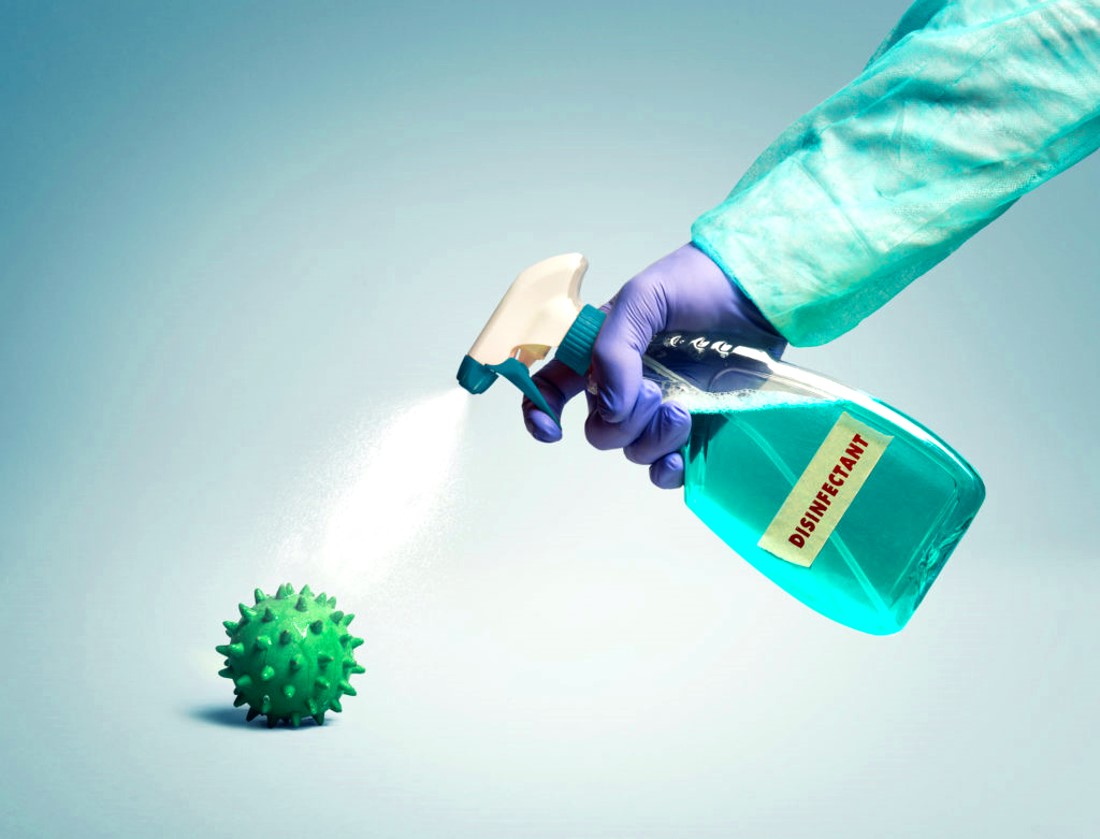In the perpetual battle against illness and disease, your home serves as the front line defense. Every surface, every corner, and every no
The Importance of Germ Removal
Protecting Your Health
Germs are not just unsightly; they pose a significant threat to your health and well-being. Bacteria and viruses lurking in your home can lead to a range of illnesses, from the common cold to more severe infections like influenza and gastroenteritis.
Preventing the Spread of Disease
A germ-infested home isn’t just a danger to its occupants but can also serve as a breeding ground for spreading illnesses to family members, visitors, and even pets. Regularly removing germs is essential for breaking the cycle of transmission and safeguarding everyone’s health.
Related: What is Eye flu (Conjunctivitis): Causes, Symptoms and Treatment
Enhancing Immune Function
Constant exposure to germs can put undue stress on your immune system, leaving you more vulnerable to infections. By minimizing germ exposure in your home, you allow your immune system to focus on fighting off genuine threats rather than battling everyday invaders.
Improving Indoor Air Quality
Germs aren’t limited to surfaces; they can also contaminate the air you breathe. Removing germs from your home can help improve indoor air quality, reducing the risk of respiratory issues and allergies triggered by airborne pathogens.
Creating a Comfortable Environment
A clean, germ-free home isn’t just about health; it’s also about comfort and peace of mind. Living in a space free from germs and bacteria fosters a sense of cleanliness and tranquility, promoting overall well-being.
Ways to Remove Germs From Your Home
Frequent Hand washing
One of the simplest yet most effective ways to prevent the spread of germs is regular hand washing with soap and water. Encourage everyone in your household to wash their hands frequently, especially before eating, after using the restroom, and after coughing or sneezing.
Surface Disinfection
High-touch surfaces such as doorknobs, counter tops, light switches, and remote controls are potshots for germs. Use disinfectant wipes or sprays to regularly clean and disinfect these surfaces to kill bacteria and viruses effectively.
Proper Food Handling
Germs can easily contaminate food and lead to food borne illnesses. Practice proper food handling techniques, such as washing fruits and vegetables, cooking meat thoroughly, and storing leftovers promptly in the refrigerator.
Regular Laundry Routine
Clothes, towels, and bedding can harbor germs and bacteria, especially if they come into contact with bodily fluids. Wash these items regularly in hot water and use detergent with disinfecting properties to kill germs effectively.
Ventilation and Air Purification
Proper ventilation is essential for reducing indoor air pollution and removing airborne germs. Open windows regularly to allow fresh air to circulate, and consider using air purifiers equipped with HEPA filters to trap and remove airborne contaminants.
Related: 12 Easy Lifestyle Changes for Youthful, Healthy Skin
Maintaining Cleanliness in Common Areas
Shared spaces such as bathrooms and kitchens are breeding grounds for germs. Clean and disinfect these areas regularly, paying special attention to frequently touched surfaces like faucets, handles, and appliances.
Limiting Outside Contamination
Minimize the introduction of germs from outside by adopting practices such as removing shoes before entering the house, wiping down grocery items before storing them, and regularly cleaning and disinfecting items brought into the home.
Promoting Personal Hygiene
In addition to hand washing, encourage other hygienic practices such as covering coughs and sneezes with a tissue or elbow, avoiding touching the face with unwashed hands, and maintaining personal grooming habits.
Pet Care and Hygiene
Pets can carry germs and parasites that pose risks to human health. Keep pets clean and groomed, regularly clean their bedding and living areas, and wash your hands after handling pets or their waste.
Educating Household Members
Finally, educate everyone in your household about the importance of germ removal and the role they play in maintaining a clean and healthy home environment. Encourage active participation in hygiene practices to collectively combat germs and reduce the risk of illness.
In conclusion, maintaining a germ-free home is not just a matter of cleanliness; it’s a fundamental aspect of promoting health and well-being for you and your loved ones. By understanding the importance of germ removal and implementing practical strategies to eliminate these unseen threats, you can create a safe and hygienic haven where everyone can thrive. Start today, and take proactive steps to ensure that your home remains a sanctuary free from harmful germs and bacteria.

COMMENTS